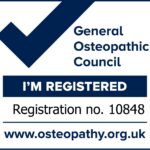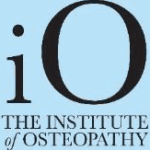In a world where pharmaceuticals often take centre stage in pain management, there’s a growing recognition of the limitations and potential risks associated with relying solely on medication. Holistic approaches in Osteopathy to pain management offer a broader perspective, acknowledging that pain is not just a physical sensation but also influenced by emotional, psychological, and even spiritual factors. By addressing the whole person, these approaches aim to not only alleviate pain but also enhance overall well-being and quality of life.
Understanding Holistic Pain Management:
Holistic pain management recognises that pain is a multifaceted experience influenced by various interconnected factors. While conventional medicine typically focuses on treating symptoms with medication, holistic approaches delve deeper, considering the individual’s lifestyle, diet, emotions, beliefs, and social support network.
One fundamental aspect of holistic pain management is the belief that the body has an innate ability to heal itself given the right conditions. Rather than merely suppressing symptoms, the goal is to support the body’s natural healing mechanisms and restore balance.
Mind-Body Techniques:
Mind-body techniques are integral to holistic pain management, emphasising the powerful connection between the mind and body. Practices such as meditation, yoga, tai chi, and deep breathing exercises have been shown to reduce pain perception, lower stress levels, and promote relaxation. By fostering mindfulness and awareness, these practices help individuals develop a greater sense of control over their pain.
Cognitive-behavioral therapy (CBT) is another key component of holistic pain management, focusing on changing negative thought patterns and behaviors associated with pain. By challenging distorted beliefs and developing coping strategies, CBT can empower individuals to better manage their pain and improve their overall quality of life.
Nutrition and Lifestyle:
Nutrition plays a crucial role in holistic pain management, as certain foods and dietary habits can either exacerbate or alleviate pain. A diet rich in anti-inflammatory foods such as fruits, vegetables, whole grains, and omega-3 fatty acids can help reduce inflammation and alleviate pain. On the other hand, processed foods, refined sugars, and excessive caffeine can contribute to inflammation and worsen pain symptoms.
In addition to diet, lifestyle factors such as exercise, sleep, and stress management are essential components of holistic pain management. Regular physical activity helps improve circulation, strengthen muscles, and release endorphins, natural pain-relieving chemicals produced by the body. Adequate sleep is also crucial for pain management, as sleep deprivation can lower pain tolerance and exacerbate symptoms. Stress reduction techniques such as relaxation exercises, mindfulness practices, and spending time in nature can help alleviate tension and promote healing.
Alternative Therapies:
Alternative therapies offer additional options for holistic pain management, providing alternatives or complements to conventional medical treatments. Acupuncture, for example, involves the insertion of thin needles into specific points on the body to stimulate energy flow and promote healing. While the mechanisms underlying acupuncture’s effectiveness are still being studied, many people report significant pain relief and improvement in symptoms.
Massage therapy is another popular alternative therapy for pain management, involving the manipulation of soft tissues to reduce muscle tension, improve circulation, and alleviate pain. Different techniques such as Swedish massage, deep tissue massage, and trigger point therapy may be used depending on the individual’s specific needs and preferences.
Other alternative therapies for pain management include chiropractic care, herbal medicine, aromatherapy, and biofeedback. While not all alternative therapies have a strong evidence base, many people find them helpful in managing their pain and improving their overall well-being.
The Role of Social Support:
Social support plays a vital role in holistic pain management, providing emotional, practical, and instrumental assistance to individuals coping with chronic pain. Friends, family members, support groups, and healthcare professionals can offer empathy, encouragement, and guidance, helping individuals feel less isolated and more empowered to manage their pain.
Peer support groups, in particular, can provide a sense of belonging and validation, as individuals share their experiences, strategies, and resources for coping with pain. By connecting with others who understand what they’re going through, people with chronic pain can gain valuable insights, tips, and emotional support to help them navigate their journey toward healing.
Holistic approaches to pain management offer a comprehensive and personalised approach to addressing pain, recognising the interconnectedness of the mind, body, and spirit. By incorporating mind-body techniques, nutrition and lifestyle modifications, alternative therapies, and social support, individuals can take an active role in managing their pain and improving their overall quality of life. While medication may still have a role to play in certain cases, embracing a holistic approach can empower individuals to explore a broader range of options and cultivate a deeper sense of well-being and resilience in the face of pain.





